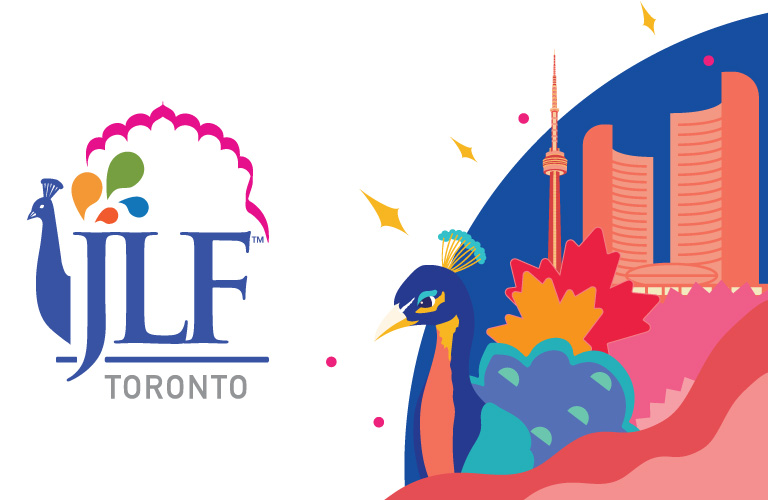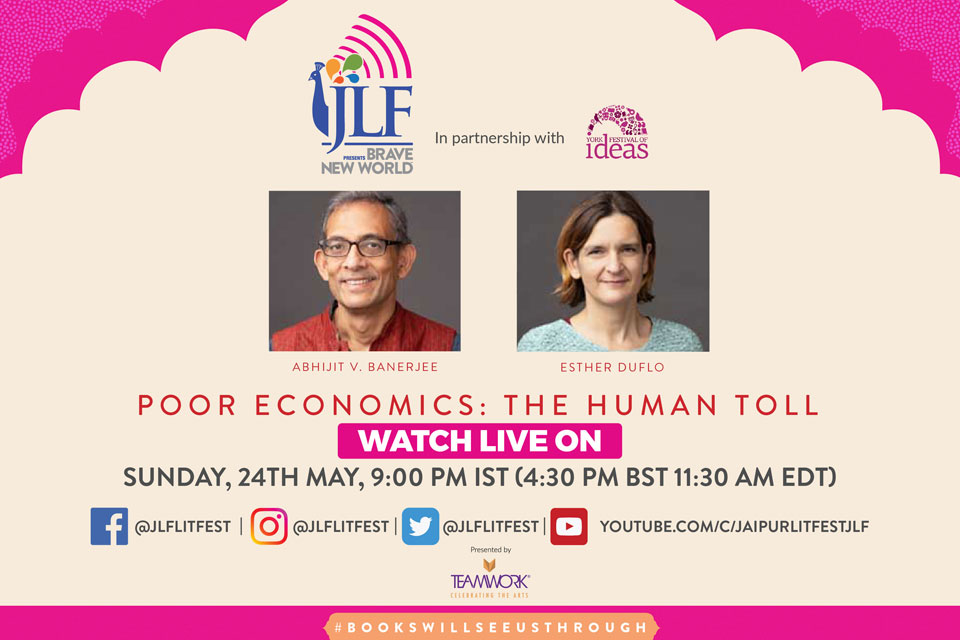


A Rich Session on ‘Poor Economics’ - When laureates talk, we listen!
This session on JLF Brave New World began with a very modest and seemingly benign question by Professor Abhijit Banerjee: “Is this the end of the world as we know it?” While it’ll be unfair to say that 45 of the most enriching minutes were spent on answering this question, what we can safely say is that it formed the philosophical underpinning of all that transpired.
Moving beyond the realm of crude economics, Professor Duflo and Professor Banerjee went on to explore the humanist response to the pandemic. It spanned a discussion on government strategies, world economics, population vulnerabilities, and the larger behavioral changes that might ensue.
One of the aspects that was unequivocally agreed upon was that the worst-hit by the pandemic is India’s migrant labour population. With earnings wiped out and entry into a vicious, unending poverty cycle, this segment of the population has been pushed further to the brinks of marginalisation. There is an immediate requirement of trust and reassurances from the government; a need tounderstand these vulnerabilities and addresses them. This discussion was critically capped by a hypothetical (not so much anymore)enquiry: What if a pandemic were to happen again?
Governments are announcing relief packages rapidly across the globe. The central ethos revolves around empowering the public to re-energise the demand and supply chain. The concept of a Universal Basic Income through direct benefit transfers in this regard has been advocated before. However, the laureates went on to describe the Universal Ultra Basic Income that targets survival by meeting the basic needs of subsistence. It is touted to be a long-term solution, a ‘promise’ that can easily be adjusted based on budgets of developing economies.
Why I would honestly suggest one to watch this session is because it brings nuance to the question: Whose world is it anyway? I’m paraphrasing here. As we begin to unfold the benignity of the question that started this discussion, we hear more and more about the resilience of the human population. The global society has found ways to “bounce back” from dramatic world events. So much so, that our current model of inter-country cooperation began at the end of the Second World War. The human race, as the laureates argue, has yearned for a sense of familiarity, a “normal” so to speak. The dangers accrue when we project our immediate reality to our actions in the future.
The “common goal” as often touched upon in this session, will define our movement to a Covid free world. Top most on the priority list is to get a vaccine rolling. However, are we placing the needs of fellow humans as our primary concern in the economics of its production and distribution? Are structural inequalities becoming more visible and if so, who is going to bear the cost of amending that what is lost? Will the corona pandemic take away from the fight to end global poverty, further magnifying the divide between the rich and the poor? Several questions that require hard and critical thinking emerged from this discussion. Both, Professor Duflo and Professor Banerjee however, are reasonably optimistic about our chances. At this time and moment, there can be the emergence (or resurgence) of a “novel” world leader who may alter our behavioral patterns significantly. Now is also the time to redefine our “ambivalent relationship” with climate change and environment. As exclaimed, we talk a lot and do very little.
No one knows what the future holds for us. Governments are dealing with an unprecedented situation. The laureates too acknowledged the task at hand and credited our incumbent government in some of the steps they’ve taken. Even the most optimistic soul however is standing by the wayside and looking at the world, only attesting our patience and resilience as a collective. If you want to find more hope and explanations as to why we should be hopeful, you should definitely tune in to this session.

Leave a comment